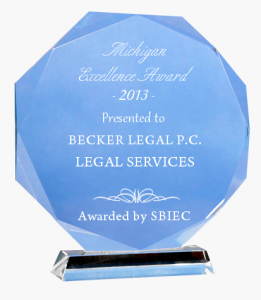Menu
Top 5 Things to Know About Legal Fees
In today’s tumultuous economy, it is entirely understandable why the determining factor in many clients’ divorce is the cost. In my experience, very few clients actually understand the costs associated with divorce proceedings, and even fewer understand the value associated with ADR (appropriate dispute resolutions). It is important to understand the following:
1. The Billable Hour
Though there are several ways attorneys structure their fees, the most common by far is billing per hour, while taking a retainer up front.
2. The Retainer
The retainer is often the fee people focus on. While it is imperative that it is clear whether the retainer is fully, partially, or not at all refundable—it is actually the hourly rate that is the influencing factor on the cost of the case overall.
3. The Hourly Rate
Hourly rates can differ greatly from attorney to attorney. Though it is tempting to immediately go for an attorney with a lower hourly rate, there are other considerations. For example, after initial consultations, you are deciding between 2 attorneys—one who charges $350/hour and the other who charges $500/hour. It may seem obvious to make a cost conscious decision and choose the lawyer who charges $350/hour. However, consider that the lawyer who charges $500 has a lot more experience, particularly with your type of case. Where it takes $350/hour lawyer 2.4 hours to draft a document, it may take $500/hour lawyer only 1.6 hours to do so. Thus, Lawyer A would cost $840, and Lawyer B would cost $800—plus the benefit of the Lawyer B’s vast experience makes it less likely corrections will need to be made later.
More importantly, look at the practice type. A lower or identical hourly rate at an aggressive litigating practice can quickly spiral costs a lot more than at a firm with an eye towards out of court settlement and keeping costs low.
4. The Importance of Process
By its very structure, the litigation process is costly: the lawyers do all the communication in the proceedings and the adversity of the process (often sharpened by “pit bull” lawyers), sets up for lengthy and intense back-and-forth “win-lose” negotiations. Consider the following:
- The average traditional contested divorce takes 18+ months to resolve and costs $30,000.
- Most Collaborative cases take 6-9 months to resolve, and even with a full team of professionals, cost $15,000 on average.
5. After the Divorce is Finalized
In addition to the initial divorce resolution, one must also consider how much it costs to make changes if necessary. Again, by its adversarial nature, litigation proves far more costly with 90% of cases returning to court. (By contrast, 90% of collaborative cases do NOT return to court). The likelihood of making changes after a contested divorce is far greater, as the ownership of the process is with the lawyers and the decisions are ultimately made by a Judge. In ADR, the couple has both ownership of the process, and ultimate decision making power.











 Lori D. Becker is featured on Super Lawyers.
Lori D. Becker is featured on Super Lawyers.